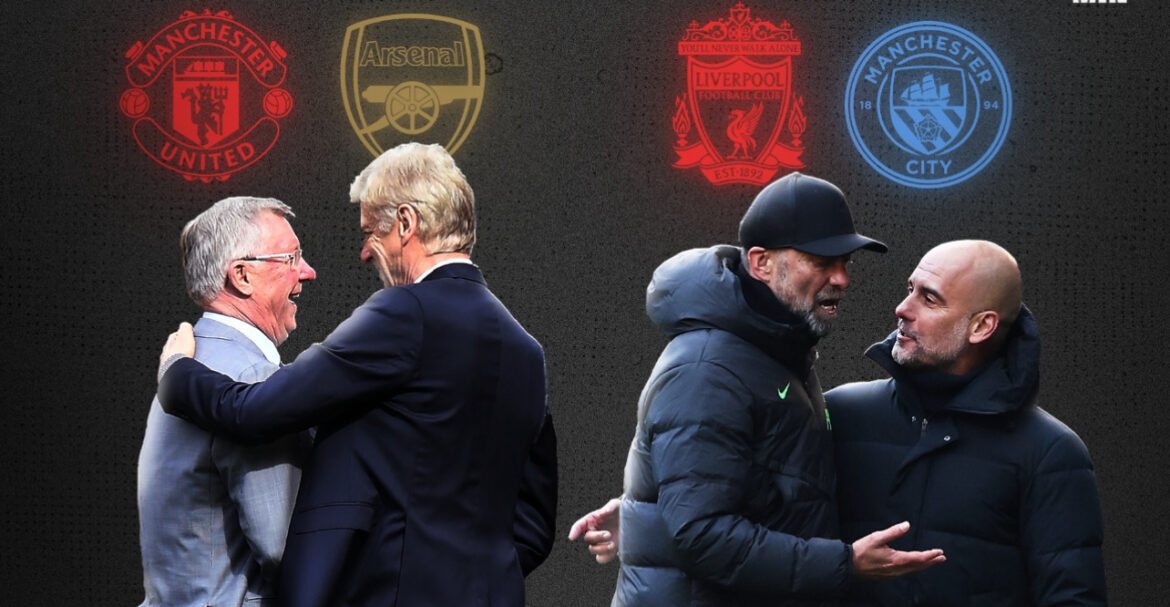As managers of Manchester United and Arsenal respectively, their clashes defined an era of English football, creating a narrative of competition, mutual respect, and often, outright animosity.
For over a decade, their teams’ encounters were not just games; they were spectacles that showcased the best of the Premier League.
Sir Alex Ferguson took the helm at Manchester United in 1986, transforming the club into a domestic and European powerhouse.
His tenure was marked by a relentless pursuit of excellence, culminating in 13 Premier League titles, 5 FA Cups, and 2 UEFA Champions League titles, among other honors.
Ferguson’s managerial style was characterized by his ability to build and rebuild squads, maintaining United’s dominance over an ever-evolving league landscape.
Arsène Wenger arrived at Arsenal in 1996, bringing with him a revolutionary approach to English football.
His emphasis on diet, training, and a flowing, attacking style of play quickly paid dividends.
Wenger’s Arsenal clinched three Premier League titles, including the remarkable “Invincibles” season in 2003-04, where they went unbeaten throughout the league campaign – a feat unparalleled in the modern era.
His influence extended beyond the pitch, as he was instrumental in the club’s move to the Emirates Stadium, ensuring its financial and competitive future.
The rivalry between Ferguson and Wenger reached its zenith in the late 1990s and early 2000s, a period when their teams were the dominant forces in English football.
The battles on the field were intense, often marred by controversial incidents and heated exchanges.
Memorable matches included the infamous “Battle of Old Trafford” in 2003, where a goalless draw descended into chaos with a post-match fracas famously dubbed “Pizzagate” after Cesc Fàbregas allegedly threw pizza at Ferguson.
Off the pitch, the managers were no less combative. Ferguson often referred to Wenger’s Arsenal as his greatest adversaries, citing their attractive style of play and consistent challenge to United’s supremacy.
Wenger, for his part, criticized Ferguson’s methods and the physicality of United’s approach, leading to a war of words that was keenly followed by the media and fans alike.
Despite the animosity, there was an underlying respect between the two titans of football management. Both recognized the other’s contributions to the game and the challenges they presented.
Their rivalry pushed each other to greater heights, fostering an environment where both clubs thrived and the Premier League as a whole benefited.
In hindsight, the Ferguson-Wenger rivalry was about more than just football.
It was a clash of philosophies, of management styles, and of personal egos. It captivated fans and pundits, adding a layer of drama and intrigue to the Premier League.
The legacy of their rivalry is evident today in the high standards and competitive spirit that define English football.
As the Premier League continues to evolve, the rivalry between Sir Alex Ferguson and Arsène Wenger remains a benchmark.
It serves as a reminder of a golden era when two of football’s greatest minds went head-to-head, leaving an indelible mark on the sport.
Their battles, both on and off the field, are enshrined in football folklore, a testament to the enduring allure of the beautiful game.
